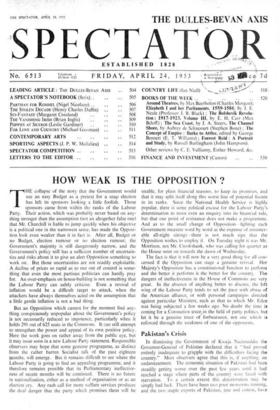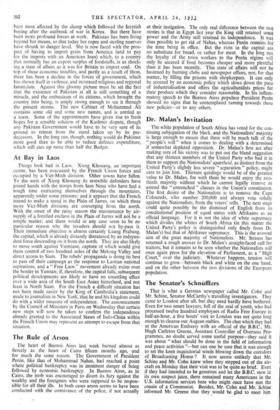Pakistan's Crisis
In dismissing the Government of Kwaja Nazimuddin the Governor-General of Pakistan declared that it " had proved entirely inadequate to grapple with the difficulties facing the country." Most observers agree that this is, if anything. an understatement. The economic situation of Pakistan had been steadily getting worse over the past few years until it had reached a stage where parts of the country were faced with starvation. To a certain extent this deterioration may be simply bad luck. There have been two poor monsoons running, and the two staple exports of Pakistan, jute and cotton, have been most affected by the slump which followed the feverish buying after the outbreak of war in Korea. But there have been more profound forces at work. Pakistan has been living beyond her means, so that today her rupee and sterling reserves have shrunk to danger level. She is now faced with the pros- pect of having to import grain from America (and to pay for the imports with an American loan) which, to a country that normally has an export surplus of foodstuffs, is as shock- ing a state of affairs as it was for Britain to import coal. On top of these economic troubles, and partly as a result of them, there has been a decline in the forces of government, which has shown itself in violence, and increased religious and regional fanaticism. Against this gloomy picture must be set the fact that the existence of Pakistan at all is still something of a miracle, and the enthusiasm of its citizens, which brought the country into being, is amply strong enough to see it through the present storms. The new Cabinet of Mohammad Ali contains some old and some new names, and is untried as a team. Some of the appointments have given rise to fresh hopes for a sensible solution of the Kashmir dispute, though any Pakistan Government would have to be very sure of its ground to retreat from the stand taken up by its pre- decessors. In the long run, though, nothing would do Pakistan more good than to be able to reduce defence expenditure, which still eats up more than half the Budget.



































 Previous page
Previous page